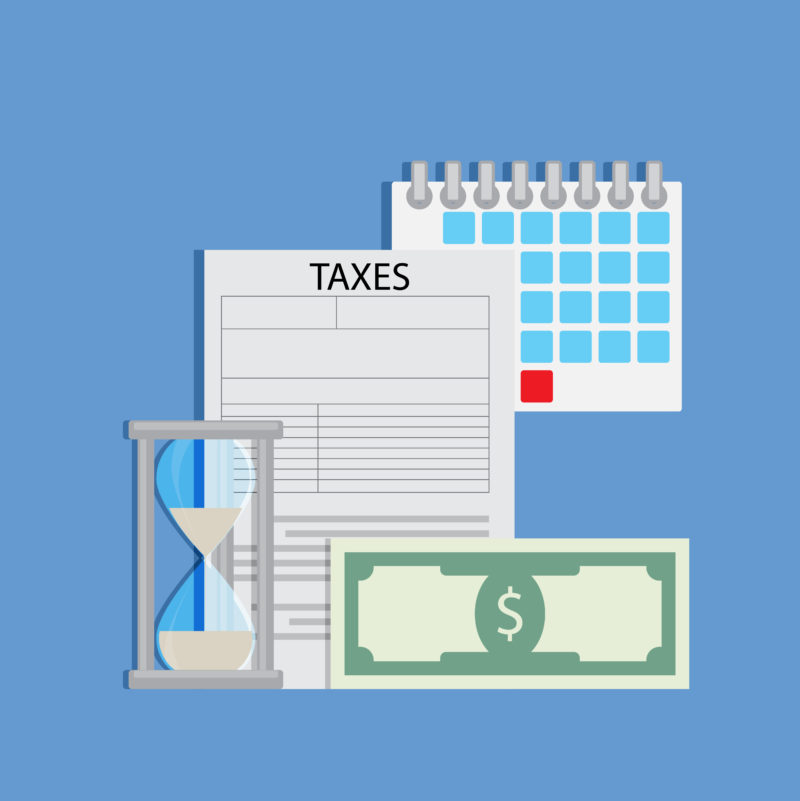How to Work Remotely While Traveling or Living Abroad in 2025: Digital Nomad Guide
Becoming a digital nomad and working remotely while traveling is a dream that many share. However, it can be a daunting lifestyle to get into. It’s one that we have some experience with, though, so we’ve put together this guide to help you get started and get the most out of living nomadically.
If you’ve always wanted to travel the world and explore exciting locations without having to worry about returning home to your job or your hard-saved money running out, you might want to take advantage of the explosion of remote work opportunities since the start of the pandemic. Keep reading for some pointers on how to travel and work remotely at the same time.
Whether you’re looking to take a remote year traveling around the world or wanting to create a permanent work-and-travel lifestyle, you might be at a bit of a loss for where to begin. Although becoming a digital nomad is easier than you might think, there are a few things you should consider before you book your ticket and set off to see the world.
Key Takeaways:
- If you want to travel, becoming a digital nomad and working remotely from anywhere in the world is one of the best ways to do so long term.
- There are many different jobs you can do while traveling, either as a freelancer working for clients or full time for remote-friendly companies.
- Working remotely while traveling can be challenging, but as long as you maintain a healthy work routine and ensure that you have solid accommodation and WiFi, it should be smooth sailing.
If you’re not looking to move around but rather just work from home, make sure to check out our more general work from home tips. Also, if you like statistics and trends, we have a remote work statistics roundup for you to enjoy.
How to Travel and Work Remotely at the Same Time
There’s no one right way to live as a digital nomad. However, there are certainly some things that anyone considering the lifestyle should take into account, as well as some best practices that we recommend.
Avoid Costly Project Management Mistakes – Get Free Tips Today!

- Discover 10 fundamentals of project management
- Understand step-by-step plans for PM execution
- Learn tips to avoid 5 common mistakes by beginners

Finding Location-Independent Remote Work
The first step to becoming a digital nomad is actually finding work that you can do while traveling the world. Although this might sound intimidating, it’s actually a lot easier than it sounds. There are literally hundreds of different remote job boards and platforms, ranging from all-purpose ones like Upwork and Hubstaff to more field-specific ones like ProBlogger.
Exactly where you’ll want to look for work depends a lot on what your skills are and what kind of job you want to do. However, if you’re totally new to looking for remote work and you have marketable skills and/or a portfolio of work to refer to, Upwork is a decent place to start. The platform hosts every kind of remote job you can imagine, but it’s a bit more selective than other platforms, so you’ll need to put some effort into your resume and portfolio before signing up.
The other big downside to Upwork is that once you reach a certain threshold of earnings (currently $500), the platform starts taking a 10 percent cut from every payment you make through the site. That said, a common tactic to get around this is to use the platform to make contact with employers and perform an initial job, after which you can continue the relationship outside of the site.
Besides these examples, there are far too many remote job boards to create an exhaustive list here, but others include fiverr.com, remoteok.io, workingnomads.co and many more. We recommend doing some Googling to find the ones best suited to the kind of work that you want to do remotely.
Types of Online Jobs While Traveling
There are a ton of different fields that offer remote work, especially since the start of 2020. Some of these require little to no formal training to get started, such as transcription and tutoring/teaching (provided you understand the subject).
Others have a low barrier to entry, provided you’re willing to spend a little time teaching yourself how to do them, such as search engine optimization (also known as SEO) and online marketing. Creative work — such as writing, photography, design and editing — also rarely requires a formal degree, though it does require competence in the field.
Finally, there are jobs with a much higher barrier to entry, often requiring actual degrees in the field to get into, such as software engineering, computer science, architecture and accounting. These jobs are also easily done remotely, but you’ll probably need education in the field and experience working in them before you can take them on the road.
How to Become a Digital Nomad: Important Things to Consider
Before we get to our list of tips and tricks for being a successful (and happy) digital nomad, let’s talk about some of the things you should take some time to consider before you hop on a plane to fly to the other side of the globe.

What Schedule Does Your Work Demand
The most important thing to consider before taking your remote job on the road is what kind of schedule it demands. Many office jobs that have switched to a work-from-home model still maintain the traditional nine-to-five business hours, which can be a challenge when you’re moving around a lot.
That’s not to say it rules out traveling. However, it does change what you’ll be able to do and when and can pose some scheduling problems if your employer is in a different time zone.
What Are Your WiFi Needs
Certain jobs require much faster and more stable WiFi than others. If you spend all day in video calls or meetings or need to upload large video files or the like, you’ll likely need much better WiFi than someone who’s just working in a Google Doc.
Figuring out exactly how fast and reliable your internet connection needs to be is crucial before you do anything, as this will be a major factor in deciding where you can go on your travels.
Tax & Immigration Laws
Just because you’re in a different country doesn’t mean you’re not liable for taxes. Generally, as long as you’re in a different country on a tourist visa, you remain a resident of your home country. Meaning, as far as the government is concerned, you’re still working there and not wherever you may find yourself physically.

If you’re a U.S. resident, even getting legal residency in another country won’t absolve you from paying U.S. taxes, though there are programs like Foreign Earned Income Exclusion (FEIE) that can help you get around this.
With that said, we’re not experts on tax law here, so make sure to do thorough research on your country’s laws and regulations regarding this issue and consider consulting an expert if you’re not sure how it works.
19 Tips for Working Remote And Traveling
Now that we’ve covered some of the things you need to put some thought into before you even get started, let’s dive into our list of 19 tips for working remotely while traveling.
1. Get Your Affairs in Order
If you’re going to spend an extended time traveling, it’s a good idea to make sure you have everything you’ll need from the administrative side of things, as well as getting everything in order on the homefront.
Make sure you have multiple debit cards in case one gets lost or broken so that you don’t find yourself in a foreign country without the ability to get cash. A credit card is also useful for booking flights and housing due to cancellation policies.
Another crucial thing to have is some type of insurance. Travel insurance for extended trips can be incredibly expensive, so consider getting international health insurance instead. While this won’t cover things like stolen belongings or canceled flights, making sure you can get health care in case of an accident is far more important.
2. Be Aware of WiFi Availability
Not everywhere has great WiFi. So whenever you’re considering a place to visit, do some research to find out what kind of connectivity you’ll have there. For example, you probably don’t want to set up shop in a small village on a remote island or up in the Himalayan Mountains if you need to be available for video calls.

3. Get the Right Hardware & Equipment
The most obvious equipment you’ll need to work remotely while traveling is a laptop with the required specifications. A portable monitor (like the ASUS ZenScreen) is also a great idea, as it’s surprisingly cheap and doesn’t take up a lot of space in your luggage. Speaking of luggage, find a good backpack and/or suitcase that can fit all of your stuff and is easy to lug around.
If you’re a lightweight traveler who prefers to only bring a carry-on, then the Osprey Farpoint 40 (here’s the version for women) is an excellent choice.
On the other hand, if you have a bit more stuff and don’t mind checking a bag for your flights, then it doesn’t get much better than the slightly bigger Osprey Farpoint 70 (here’s the version for women), which comes with a smaller backpack that clips onto the main one for easy carrying.
If you want to avoid carrying a backpack the entire time and want the flexibility of wheels, the Osprey Sojourn 45L is an excellent choice, as it meets carry-on requirements and can easily swap between a backpack and wheeled luggage.
Obviously there are a ton of other great options in whatever style you prefer, but we’re not going to dwell.
4. Have Backups for Connection and Hardware Failures
Having your laptop break down or the internet go out while you’re traveling and working can be disastrous, so it’s best to prepare. Get a SIM card when you arrive in a new country to make sure you can connect through mobile data and consider bringing an extra (preferably cheap and lightweight) laptop like a Chromebook to tide you over if your main laptop fails.
5. Get the Right Software Tools
There’s a good chance your equipment is more vulnerable when you’re traveling around compared to sitting at home, so it’s important to protect your digital belongings. Don’t ever store something that matters on local storage, as even external drives are more exposed when you’re traveling.
Storing your data in the cloud is the only way to make sure you can access it from wherever you are, on any device. Some companies have already started using platforms like Windows 365 Cloud PC, a service that lets you access a full Windows desktop wherever you are and no matter what device you’re using.
This of course depends on the budget of your company and is easier for some professions than others. Using a cloud tool to add layers of protection on your data definitely helps, just think about how much data your job generates and figure out how much cloud storage you’d need.
Other valuable software tools include project management solutions like Trello or Asana, especially if you’re working as a freelancer. A good VPN is crucial for security and might even be a requirement for your job. There are also many browser extensions for both security and productivity that can be useful to nomads.
6. Find Opportunities for Social Interaction…
When you’re away from home and your existing social support network, finding people to spend time with can sometimes be difficult. For this reason, many digital nomads report loneliness as the number one challenge they encounter.
A good way to get around this is to spend some time in hostels or use social networks like Facebook to find social events, expat groups and other like-minded digital nomads wherever you find yourself.
7. … But Don’t Get Too Distracted
On the flip side, it’s easy to get distracted by all the exciting things and new environments that you’re surrounded by when traveling. Make sure that you don’t let it all go to your head and remember to set aside time to actually get work done. Enjoying your time abroad is important, but you have to avoid letting it keep you from your responsibilities for too long.
8. Locate Places With Other Digital Nomads
When you’re traveling, chances are that most people you meet will come and go rather quickly, as most of them will be on a shorter-term trip or vacation. It’s a good idea, then, to find digital nomad hotspots, such as co-working spaces, so that you can form longer-term relationships and a sense of community with other remote workers not strapped for time.

9. Stay On Top of Time Zones
If your job involves doing tasks at specific times, such as meetings or deadlines, make sure you’re aware of the time difference between where you are and where your job is.
For example, if you work in EST but are traveling somewhere like Japan, your co-workers’ 8 a.m. will be 9 p.m. for you. Daylight saving time can make this even more complicated, so keeping one of your devices on “office time” is a good idea to avoid confusion.
10. Find Good Work Environments
Unless you’re staying in places explicitly designed for digital nomads, chances are your accommodation won’t be all that well-suited as a workplace. Luckily, dedicated coworking spaces are easy to find, so it’s a good idea to look for one when you explore a new place.

11. Establish a Healthy Work Routine
It’s easy to get swept away with all the exciting new things to see and do when you reach a new destination, so establishing a firm routine for your work — and sticking to it — is crucial to ensure you maintain a healthy balance between travel and work. One way to do this is to keep a regular workweek and weekend, even if your work doesn’t require it.
12. Communicate With Your Team & Employer
If your boss or employer is OK with you traveling around while working, chances are that they’ll have some level of understanding for the things that can go wrong when you’re on the road. The key here is clear communication, so make sure to let your employer know when you’re planning on making a move or if something unexpected happens.
13. Figure Out Your Accommodation Needs
There are many different kinds of accommodation to choose from when you’re traveling, and choosing the right type for you will depend entirely on what makes you comfortable. If having your own personal space isn’t something you care about, booking dorms in hostels is a great way to save money. However, for many, this isn’t a comfortable way to live long term.
If sharing a room with a bunch of other people sounds like a nightmare to you, you’re probably better off looking at hostel private rooms, hotels or Airbnbs. Also, if you know you’re going to spend an extended period of time in a location, the cheapest way to find your own place is usually by going through local rental agencies or Facebook groups for housing.

14. Don’t Travel Too Fast…
You might want to move from place to place quickly to see new things, but arriving in a new city or town every few days can make it difficult to maintain a productive work schedule. In our experience, slowing down and taking the time to get to know the places you go makes for a better time and makes it easier to get work done. This is highly personal, though, so your mileage may vary.
15. …But Be Careful Not to Get Stuck
On the flip side, it’s easy to get comfortable in a single location and find yourself staying much longer than you planned or even really wanted. In these cases, remind yourself that the reason you’re doing this in the first place is to travel, not simply work from home in a different country. That said, do what you want and if that means staying in a place long term, who are we to tell you not to do that?
16. Create a Budget and Stick to It
Although chances are you’ll spend a lot of time in places with a relatively low cost of living, it’s still important to keep a budget. Tours, experiences and transportation can quickly become expensive. So if you’re not careful, you can easily end up in a situation where you’re spending more on your travels than you’re bringing in by remote working.

17. Be Flexible…
Unlike most people who travel, you’ll have no set time where you need to leave and go home. This lets you be flexible in what cities and places you go to and when you go, which, in turn, means you can save a lot of money on things like flights and accommodation. If waiting a week to get to a destination means a half-off flight, it’s definitely worth considering.
We also have a guide on how you can use a VPN for cheaper flights.
18. …But Try to Plan Ahead
However, having some idea of what you want to do and where you want to go in the near future can be incredibly helpful. Although having a plan doesn’t necessarily mean you have to follow through on it, it’s good to have a loose framework figured out ahead of time, especially if you need to keep your employer or manager in the loop about your whereabouts.
19. Consider Maintaining a Home Base
Even if you’re working remotely and traveling, it’s not a bad idea to find a spot that you like to keep as a home base. This can be in your home country or somewhere else, but simply having a place to return to when you feel tired of moving and need some peace and quiet can be immensely useful.
Final Thoughts: Living Abroad and Working Remotely
There you have it: our personal take on the best practices and tools for those who want to travel the world while maintaining an online job. Since most of these are lifestyle advice, your mileage may vary. However, at a minimum, these are all factors you should consider before making the leap, even if you choose not to follow all the tips.
What did you think of our remote working and travel tips? Did we hit the nail on the head, or did we leave out something crucial? Are you already a digital nomad? If so, what’s been your experience with working from abroad? Let us know in the comments below. Thank you for reading.
FAQ: How to Work Remotely and Travel
Yes, with some planning, you can easily take your remote job on the road and work from anywhere you’d like.
Pretty much any job done on a computer — such as writing, programming, accounting, SEO, tutoring — has the potential to be a remote job.
Pretty much anywhere. Popular digital nomad destinations include Southeast Asia and Latin America, but there’s nothing stopping you from going anywhere you’d like.
Yes, as long as your employer is fine with it. Very few countries have any rules about people doing their job while on a tourist visa, so long as they’re not seeking local employment.

